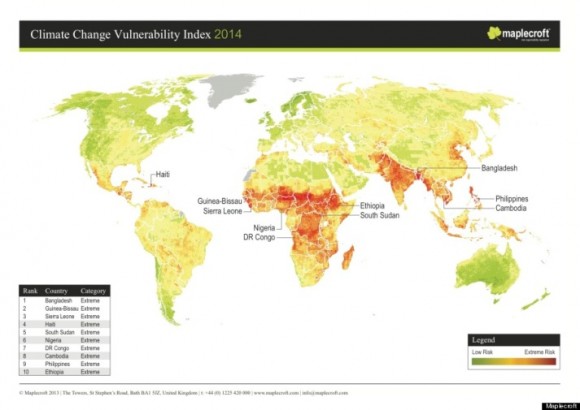 This was written by Reverend Mitchell C. Hescox, President/CEO Evangelical Environmental Network:
This was written by Reverend Mitchell C. Hescox, President/CEO Evangelical Environmental Network:
On September 20, 2013, the U.S. Environmental Protection Agency (EPA) proposed the first uniform national standards for carbon pollution standards for new power plants. This action coupled with the eventual existing source standard provides a historic step in the right direction to defend our children’s health, and limit the already experienced threats of our changing climate.
Children, both born and unborn, are our most precious gift. Each child should be born into a welcoming world, not one threatened by a changing climate. For people like me who are pro-life evangelical Christians and life-long Republicans, defending our children, the unborn, and those yet to be born, is at the heart of who we are. I live in Southern York County, Pennsylvania. According to the American Lung Association, Central Pennsylvania, including the Harrisburg and York areas, already receives failing marks for high ozone and particulates, leading to over 27,000 cases of pediatric asthma and over 270,000 children at risk. Higher temperatures caused by a changing climate simply multiply the harm. Already York has the same climate as Richmond, VA twenty years ago.
The National Oceanic and Atmospheric Administration’s September 2013 Report stated, “The global land surface temperature was 0.89°C (1.60°F) above the 20th century average of 12.0°C (53.6°F), marking the sixth warmest September on record. For the ocean, the September global sea surface temperature was 0.54°C (0.97°F) above the 20th century average of 16.2°C (61.1°F), tying with 2006 as the fourth highest for September on record.” Those under the age of 29 have only known a warming world, because every month since February 1985 has been above the 20th Century average.
Isaiah 24:5 (NCV) 5 The people of the earth have ruined it, because they do not follow God’s teachings or obey God’s laws or keep their agreement with God that was to last forever. “The simple fact is that if man [sic] is not able to solve his ecological problems, then man’s resources are going to die.”[1]
Noted evangelical Francis Schaeffer correctly stated those words in 1970 and they remain true today. The earth has a fever,[2] and the fever’s impacts threaten all of us. Simply put, climate change is the greatest moral challenge of our time. Climate Change resulting from carbon pollution makes bad things worse. It intensifies natural processes, making natural events unnatural or extreme, and hits the most vulnerable the hardest.
The Climate Change Vulnerability Index 2014 displayed above graphically indicates the great difficulty in scrapping out life for the world’s poorest people. The darker the color on the map indicates those already impacted. The Democratic Republic of the Congo, Haiti, Malawi, Sierra Leone, and Bangladesh are already some of the most difficult places to survive in the world, and with climate change, they are at the most at risk. These threats are not some future event. They are happening now, and God’s children across this planet cry for our help. The Cape Town Commitment[3] issued by the Lausanne Movement (founded by Billy Graham and John Stott, another internationally respected evangelical leader) recognizes the need for climate action, as does the global evangelical network Micah Challenge.[4] The changing climate kills thousands a year, multiplies diseases, and forces millions to flee their homelands, as food and water security simply do not exist. Without basic needs met, conflict ensues. In October 2009, Burke et. al. published Warming Increases the Risk of Civil War in Africa. They conclude that for each 1 degree Celsius warming there will be a 49% increase in African civil wars, a 54% increase in conflict, and an additional 393,000 battle deaths within the next 20 years.[5] They are not alone in predicting increased instability. The 2010 United States Department of Defense Quadrennial Review states: Climate change will affect DoD in two broad ways. First, climate change will shape the operating environment, roles, and missions that we undertake.
The U.S. Global Change Research Program,composed of 13 federal agencies, reported in 2009 that climate-related changes are already being observed in every region of the world, including the United States and its coastal waters. Among these physical changes are increases in heavy downpours, rising temperature and sea level, rapidly retreating glaciers, thawing permafrost, lengthening growing seasons, lengthening ice-free seasons in the oceans and on lakes and rivers, earlier snowmelt, and alterations in river flows.
Assessments conducted by the intelligence community indicate that climate change could have significant geopolitical impacts around the world, contributing to poverty, environmental degradation, and the further weakening of fragile governments. Climate change will contribute to food and water scarcity, will increase the spread of disease, and may spur or exacerbate mass migration. While climate change alone does not cause conflict, it may act as an accelerant of instability or conflict, placing a burden to respond on civilian institutions and militaries around the world. In addition, extreme weather events may lead to increased demands for defense support to civil authorities for humanitarian assistance or disaster response both within the United States and overseas.[6]
Just a few months ago, my dad, an 87-year-old former coal miner, and I were sitting at his kitchen table and having a discussion. “We just don’t have the winters we used to have,” he said, “Snow used to stay around all winter, and we had a lot more of it. I think it’s time to do something about this climate change stuff before it’s too late.”
My dad gets it, and most of us feel it inside.
In 2012, Pennsylvania experienced a total of 24 broken heat records, 5 broken snow records, 40 broken precipitation records, and 5 large wildfires. Our weather is more extreme and getting worse. In addition to my Dad, most of my family worked in coal; and before becoming a pastor, I worked fourteen years designing and supplying equipment to both the coal mining and utility industries around the world. While businesses like Dow Chemical, M&M Mars, and even Wal-Mart spend billions for energy efficiency, big coal spends hardly anything to study how to clean up their act. Only when forced by regulations did the coal industry address mine safety, acid rain, mercury pollution, and all forms of water pollution and land reclamation.
My childhood playgrounds near my Cambria County home were un-reclaimed strip mines that spewed sulfur and heavy metal contaminated water into the remaining forests and streams. Some say coal produces the cheapest electricity. In York County, I could pay around $0.08 per kWh for electricity but thanks to Pennsylvania’s Switch Program, I elected to pay $0.085 per kWh for renewable energy. This is hardly an economic burden that you may hear from some today.
However, sustainable energy costs much less when you factor in all the external costs from coal like medical bills, lost lives, property damage, and the like; coal electricity is triple what you pay at the meter, according to one study. It may appear cheap, but each of us pays the price in our children’s health, insurance premiums, and polluted water and air. They are hiding their costs in the bodies of our children and in the changing climate. Defending our children’s health now and in the future must be a national priority. It’s the greatest moral challenge of our time, one we are all called to do something about.
We need creative minds making new energy discoveries, energy efficient cars, appliances, homes, and buildings. We also need state specific plans that will allow each region the maximum flexibility to reduce carbon pollution. Pennsylvania is not Iowa or even New Jersey. State flexibility provides the advantage for local wisdom, industry, and opportunities. Let’s work together as one nation under God to defend our children, and understand overcoming carbon pollution as an All-American Opportunity.
TELL EPA YOU SUPPORT NEW LIMITS ON CARBON POLLUTION





